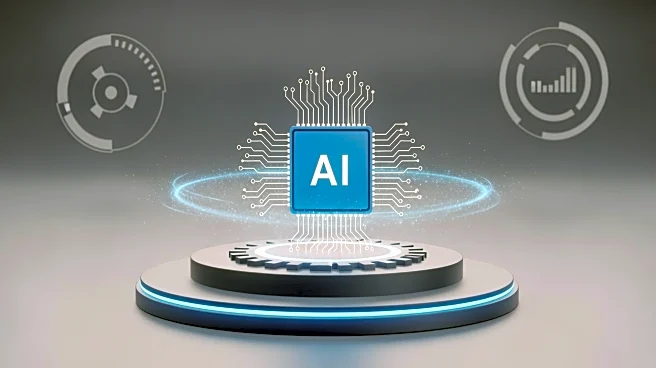What's Happening?
Professor Mark Fritz, a leadership expert, emphasizes the critical role of human leadership in the successful implementation of artificial intelligence (AI) within organizations. Despite the rapid adoption of AI technologies, a significant number of AI pilot
programs fail to progress beyond the initial stages. Fritz highlights that the key to overcoming this challenge lies in applying knowledge effectively, rather than merely possessing it. He argues that AI tools, such as ChatGPT, require strong contextual framing provided by human leaders to deliver desired outcomes. Fritz advocates for leaders to embrace AI themselves and train employees not only in its technical aspects but also in its transformative potential. He stresses the importance of experimentation and learning from mistakes to drive successful AI integration.
Why It's Important?
The insights provided by Professor Fritz underscore the necessity of human leadership in harnessing the full potential of AI technologies. As AI continues to evolve and expand its capabilities, organizations that fail to integrate it effectively risk falling behind in the competitive landscape. The emphasis on leadership and context highlights the need for strategic vision and alignment among stakeholders to achieve meaningful AI-driven transformation. This approach can significantly impact industries by enhancing productivity, innovation, and economic growth. Organizations that prioritize leadership development and contextual understanding stand to gain a competitive edge in leveraging AI for sustainable success.
What's Next?
Organizations are encouraged to focus on developing leadership capabilities that align with the demands of AI integration. This includes fostering critical thinking, systemic thinking, and influencing skills among leaders. By staffing AI pilot programs with their most capable individuals, companies can ensure effective advocacy and rapid learning from outcomes. The emphasis on storytelling and cultural change suggests that leaders must articulate robust visions that resonate with employees, fostering a sense of personal connection and commitment to the organization's goals. As AI technologies continue to advance, the role of human leadership will remain pivotal in driving successful implementation and transformation.
Beyond the Headlines
The discussion around AI implementation highlights broader implications for organizational culture and leadership development. The shift towards AI-driven processes necessitates a reevaluation of traditional leadership models, moving away from micromanagement to more strategic and visionary approaches. This cultural transformation requires leaders to become adept storytellers, capable of framing the future in a way that engages and motivates employees. The focus on experimentation and rapid learning also suggests a shift towards more agile and adaptive organizational structures, where innovation and continuous improvement are prioritized. These changes have the potential to redefine leadership roles and organizational dynamics in the AI era.

















